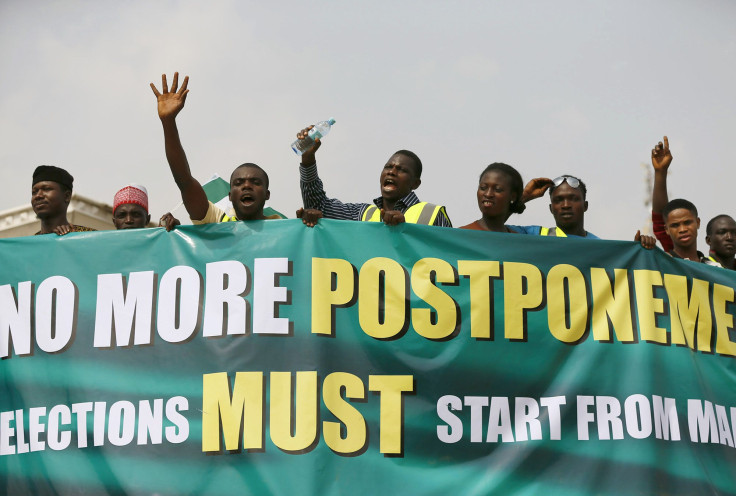Nigeria Elections 2015: Postponing Election Again Would Be Unconstitutional, Election Commissioner Says

Postponing the date of Nigeria’s national elections past the already extended March 28 contest would be "unconstitutional," the nation’s election chief said Wednesday, according to Agence France-Presse. The elections were originally expected to be held Feb. 14, but that date was pushed back after the military said it needed six weeks to stabilize Nigeria amid the advances of the Boko Haram Islamic militant group.
"I don't see how anybody can contemplate any extension beyond these six weeks because there is no constitutional grounds on which you can do that," Nigeria Election Commissioner Attahiru Jega told the senate, according to AFP. He noted that he postponed the election date from Feb. 14 to March 28 at the behest of the military, which said it couldn't guarantee voters' safety and said it needed six weeks to stave off Boko Haram. The military said earlier this month that it wouldn't further interfere with the Nigerian elections.
Jega’s comments came the same day Boko Haram, the militant group that gained worldwide infamy after it kidnapped about 300 girls in Borno state in April 2014, threatened that the elections “will not happen in peace.” The Nigerian army claimed on Wednesday that it killed more than 300 Boko Haram militants.
The Nigerian election commissioner said the country’s constitution wouldn't allow for pushing back the date of the election again. He said the constitution says the election has to end at least 30 days before May 29. That’s the date the country’s new government has to be sworn in, according to the constitution, he said.
"Every Nigerian knows we want elections to hold ... within a constitutional timeframe," Jega said. Some have accused the military of improperly interfering with the election by urging the first postponement -- a move that some said was designed to allow President Goodluck Jonathan more time to improve his standing with voters. Jonathan's opponent, Muhammadu Buhari, was Nigeria's head of state from 1983 to 1985 after taking power in a military coup. Jonathan is expected to be in a close race with Buhari because groups have formed a coalition with Buhari, a Muslim who resides in the northern part of Nigeria while Jonathan is a Christian who lives in the south, according to the Associated Press.
The armed forces were also facing allegations that it rigged local elections in Ekiti state last year, but Jega said they should be given “the benefit of the doubt.”
"The security agencies are [made up of] patriotic Nigerians,” he said.
© Copyright IBTimes 2024. All rights reserved.












